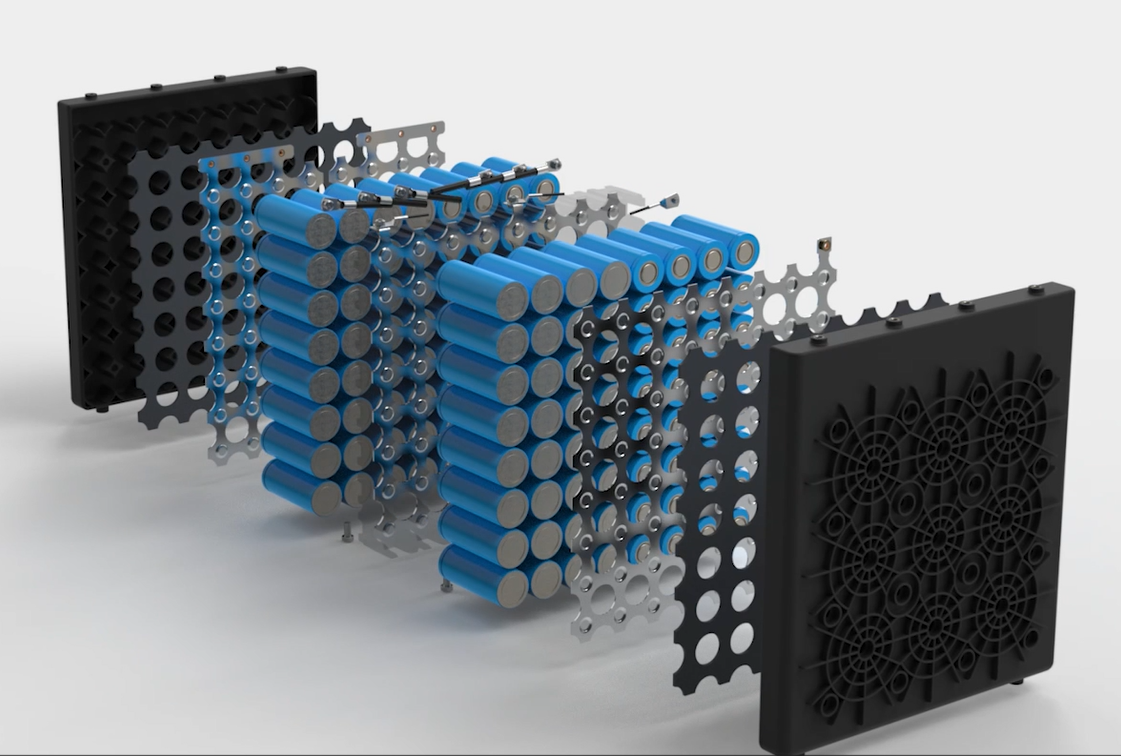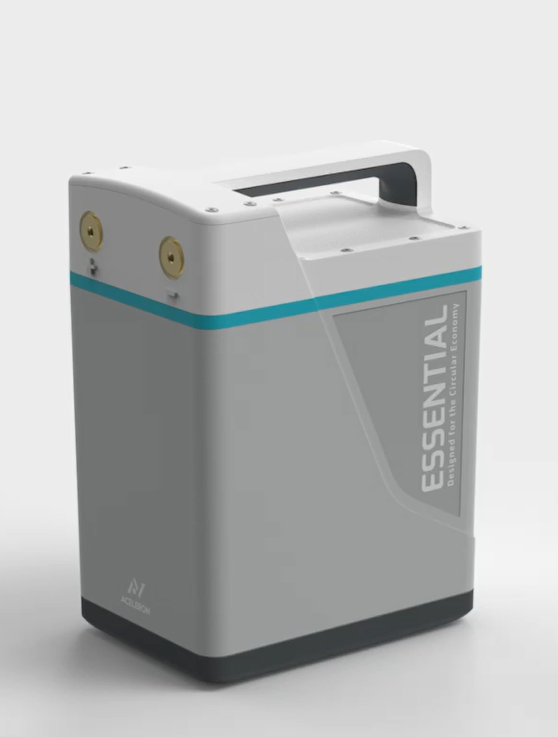
- Date
- 3rd August 2023
- Categories
- Energy Storage
By Alicia Butterfield and Prof. Ed Brown (Loughborough University).
What are the consequences of an unreliable electricity supply?
For many it can lead to frustration, disillusionment and a lack of trust in the reliability of their appliances – certainly when it comes to using it for activities as essential to family life as cooking. Whether the lack of reliability stems from the intermittency of renewable power, a simple lack of generating capacity or outright sabotage, the effects on end users is very much the same. And if households do not feel confident in using electricity to cook, the negative impact is well documented, from health and wealth to gender equity and quality of life.
There are implications beyond the household too. Reluctance to using electricity for everyday tasks signifies a longer road before utilities become profitable, meaning companies are less inclined to invest in infrastructure development and service improvements. This can become a cycle of low-quality provision followed by low level investment and subsequently low levels of usage. Those living in last mile communities are the least likely to benefit from improvements to a national grid system, whilst the innovations for mini grid development are less likely to be implemented if they cannot be shown to be profitable.
Furthermore, in manufacturing hubs like India (as well as those like Burn looking to develop production facilities in Africa), a lack of success in promoting electricity usage for cooking means fewer opportunities to stimulate manufacturing investment. Technicians who could have been trained to maintain Electric Pressure Cookers (EPCs) and induction cookers are no longer required. Meanwhile, large scale deforestation continues in places like Uganda as people burn wood fuel. This in turn exacerbates the issues of women’s safety and widespread floods, not to mention the double blow of releasing CO2 by burning the very forests which could help to remove it from the atmosphere.
Whilst Africa has been plagued by the unreliability and lack of coverage of its electricity supplies, there are some signs that this could change in the future. Firstly, there has been gradual improvement in the electrification of areas that has previously been unserved (although Covid saw a- hopefully temporary- reversal of progress). Secondly, there are massive opportunities to promote significant investment into African renewables. Nonetheless, for the promise of cheaper, more efficient and greener electricity to be realized will demand a significant growth in the deployment of energy storage technologies alongside renewable energy.
With so many issues surrounding the future of unreliable electricity supplies across the globe, it’s no wonder ESMAP created the Energy Storage Partnership (ESP) to explore the development and implementation of energy storage innovations to support the accelerated greening of electricity systems globally. In a recent blog on the ESP, Global Director for the World Bank’s Energy and Extractives Global Practice Demetrios Papathanasiou discusses why energy storage matters so much for the global energy transition. Last month, the Ninth ESP Stakeholder and Partner Forum was hosted at Loughborough University and highlighted some of the latest developments and opportunities for mass scale up of energy storage solutions.
Hosted by Loughborough’s STEER Centre where MECS is located, the event was delivered in collaboration with the Midlands Energy Research Accelerator which is a collective of Midlands-based Universities working on clean energy solutions. ESP delegates had the opportunity to visit several ERA project sites. The Trent Basin project and Hydrogen and Medium-Energy storage facilities in Nottingham demonstrated both cutting-edge technological developments and real world implementation, whilst the British Geological Survey (BGS) focused on addressing geological barriers and hazards associated with the deployment of underground energy storage, as well its large-scale potential. Delegates also had the opportunity to visit Warwick University’s battery research facility as well as the amazing developments taking place at Tyseley Energy Park.
MECS has been involved in the ESP for several years. One of the key aspects of the Loughborough-hosted meeting was its focus on community and household level innovations in energy storage alongside the more frequently discussed innovations at the level of grid storage. Of course effective and affordable grid storage promotes more affordable and reliable electricity supplies which are going to be essential to the accelerated uptake of electric cooking that we all want to see, but innovations in more local-scale storage are also set to make major contributions.
So where does the paradox of Theseus’ ship come into it? When Theseus set sail from Athens, various parts of his ship had to be replaced due to natural wear and tear. Over time, all parts of the ship were replaced, the paradox is the question of whether this was now the same vessel in which he set sail.
Aceleron have created their own battery paradox through the creation of Core, a battery which operates without permanently bonded components, allowing flexibility of interchanging parts when replacements or upgrades are needed. When a traditional battery reaches end of life, roughly 80% of cells are still usable. Yet in these traditional welded models the entire battery is often consigned as a waste product. It is crushed to retrieve the raw materials, in some cases plastic casing is burned off to access the metals left behind. With 22 million tonnes of electric vehicle battery waste alone being produced by 2040, a solution to battery waste is needed. Conversely, the Core battery works as a set of individual components working as a compressed unit. As parts of the battery expire, they can be replaced. This not only drastically reduces the waste by retaining working components, it also allows for transitional upgrades of systems throughout the life cycle of the compressed unit meaning there is no crisis point for having to fund an entirely new battery purchase. Whether or not this battery is considered to be the ‘same vessel’ as it was at the start of the process, the benefits to this adaptable model are both environmental and cost effective. The cheaper energy is to store, the better the chances of increased usage and the more reliable the energy source becomes. The more reliable the energy source, the more likely a family is to depend on it for their daily meals. They are also producing systems that will power mini-grids and exploring new business models that allow mini-grid developers and other businesses to lease their storage.
World’s first serviceable, upgradeable and scalable lithium iron phosphate battery from Aceleron:
MECS has supported a number of storage related initiatives over the years, for example under the Technology Research Innovation for International Development (TRIID) Project and continues to see energy storage as a crucial area of innovation. This thinking underpins our discussions with Aceleron, who are in discussion with several MECS partners and Mobile Power, who offer a pay-per-use business model allowing off grid consumers commitment-free access to clean energy without paying a deposit. Mobile Power are established in the energy and mobility sectors with over 11 million battery units distributed across countries in Africa. Their move into eCooking will be particularly beneficial in countries currently reliant on generators like Nigeria, where the fuel efficiency of running a 1.5KVA generator for three hours in the evening was estimated by the Access to Energy Institute (A2EI) as being as low as 22%. From an ancient Greek paradox to the most recent technological innovations; in one of the most interesting talks at the ESP forum, Stuart Nelmes, the Engineering Director of Highview Power explained their deployment of Liquid Air Energy Storage in the UK. This is based on the use of an industrial liquefier to refrigerate clean, dry air in a series of compression and expansion stages until the gas liquefies. The liquefied air is stored at low pressure in insulated tanks, which are readily and cheaply available from existing sectors. Liquid air is then drawn from the tanks and pumped to high pressure, reheated and expanded. The resultant high-pressure gas is then used to drive expansion turbine generators.

By banking excess energy from intermittent renewable sources, the system balances out the naturally occurring peaks and troughs allowing for a more consistent energy provision over longer timescales than battery storage solutions. This technology platform provides energy storage that is ready to be deployed at grid-scale not some way off in the future, but now.
Returning to MECS’ interest in storage, in the future we hope to see further developments in thermal energy storage and in different battery chemistries – for example our colleagues in Malawi are already exploring the use of lithium titanate, whilst the world is braced for the emergence of sodium ion batteries. These new technology developments will surely provide content for future ESP forums where we look forward to connecting with and supporting global partners and stakeholders.
Featured Image: Deconstruction of a Aceleron Sustainable Lithium Iron Phosphate Battery. Copyright of Aceleron, 2023.